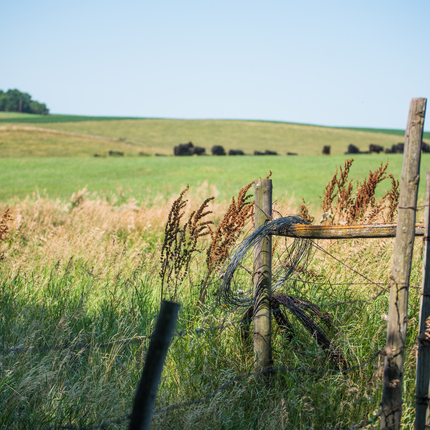By Andrea Hartman, former staff member
For farmers and ranchers interested in expanding conservation on their operations, two of the nation’s largest working lands programs—the Conservation Stewardship Program (CSP) and the Environmental Quality Incentives Program (EQIP)—are open for applications.
CSP and EQIP offer financial assistance to implement conservation practices, with EQIP offering support for individual practices and CSP providing support for a planned set of practices. CSP participants are required to demonstrate existing conservation efforts to enroll, while EQIP participants are not.
By working with their local Natural Resources Conservation Service (NRCS) office, producers consider their entire operation and select conservation practices that will address natural resource concerns identified as priorities for their area. Farmers and ranchers apply to participate, and once accepted, can enter into multi-year contracts with NRCS to implement the identified practices and receive cost-share payments to support the additional conservation activities. CSP contracts are five years long, while the length of EQIP contracts varies.
The 2018 farm bill made several changes to CSP and EQIP, which NRCS is in the process of rolling out and should be available for the 2020 signup period. For CSP, these include offering higher payments for several conservation practices—cover crops, resource conserving crop rotations, advanced grazing management, and comprehensive conservation planning. These practices offer important benefits for building soil health and protecting water quality.
One of the changes to EQIP, as a result of the 2018 farm bill, is that beginning farmers and ranchers will be eligible to receive a portion of their cost-share payments at the start of their contract, instead of after the work is completed.
For more information on applying for either program, including spring application deadlines, farmers and producers should contact their local NRCS office.





